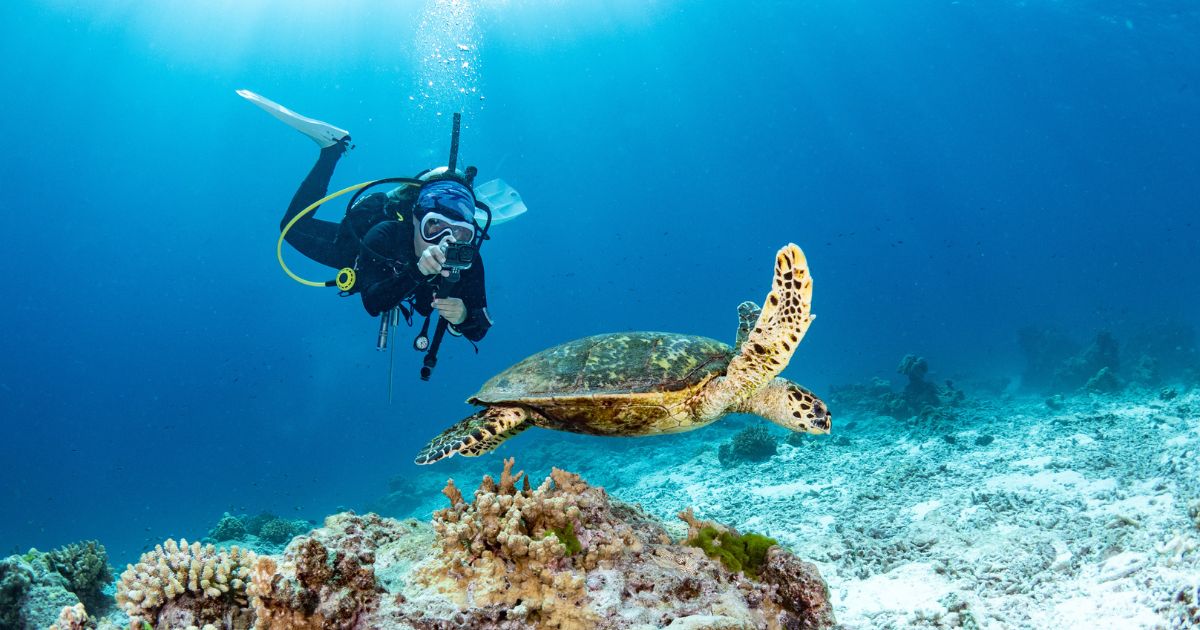This summer, everyone is excited to hit the beaches and have a blast. But if you’re looking to crank up the fun, diving sports might be just what you need.
Recently, Dubai approved a plan to upgrade Jebel Ali Beach, adding a 2.5-kilometer diving zone, a long walkway, and more water sports activities for beach enthusiasts.
Read here: Jebel Ali Beach in Dubai to get diving area, long walkway and recreation zones
So, which one should you try first? Free diving or scuba diving? Let’s dive in and find out!
What is freediving?
Freediving is a diving sport where you hold your breath and dive deep until it’s time to pop back up for air. No equipment is needed here—just you and the ocean! It’s a unique and thrilling experience compared to scuba diving, where you rely on a breathing apparatus.
What is scuba diving?
SCUBA stands for “Self-Contained Underwater Breathing Apparatus.” With this sport, you can breathe underwater without having to pop up for air like in freediving. It’s like having your own set of gills! However, you will rely on your breathing apparatus, so ensure you’re comfortable with the gear.
The way you handle breathing underwater is just one of the many differences between these two diving sports. However, they also share a lot in common. Here are some similarities:
1. Great controlled breathing skills
In both freediving and scuba diving, having top-notch breathing skills is key. Divers in these sports get to amp up their lung power, strengthen those abs, and even extend their breath-holding abilities—whether they’re exploring underwater or chilling on the surface. It’s all about mastering that deep breath!
2. Staying fit and healthy
If you’re eager to jump into freediving or scuba diving, staying in good health is crucial. Freedivers especially rely heavily on their breath underwater, so being in top shape is a must. While scuba divers don’t need to be Olympic athletes, a healthy heart and lungs are essential.
And let’s not forget about mental health—having a mature attitude, good judgment, and self-discipline are key to enjoying these thrilling sports safely.
3. Prioritizing safety
Whether you opt for freediving or scuba diving, safety should always come first when you’re underwater. It’s essential to have a dive buddy and to check the weather conditions before diving. Knowing how to handle encounters with sea predators, such as sharks and snakes, is also crucial. Being prepared ensures a safe and enjoyable dive every time.
How to be a freediver?
If you want to learn freediving, here’s a checklist you should check for yourself.
- Complete a certified freediving course from organizations like PADI (Professional Association of Diving Instructors) Freediver or AIDA (International Association for the Development of Apnea).
- Obtain essential gear: mask, snorkel, fins, and wetsuit appropriate for your diving environment. You might also need additional equipment as you advance, such as weight belts and dive watches.
How to be a scuba diver?
Meanwhile, learning scuba diving might seem daunting compared to freedivers because of the additional equipment you need to purchase. Nevertheless, it is just as fun as freediving, with other benefits such as being able to know how to control breathing underwater.
- Complete a certified scuba diving course from organizations like PADI (Professional Association of Diving Instructors), NAUI (National Association of Underwater Instructors), or SSI (Scuba Schools International).
- Learn to assemble, use, and maintain scuba equipment including tanks, regulators, buoyancy control devices (BCDs), masks, and fins. Additionally, you will have to purchase or rent some of these gears yourself.
Whether you go for freediving or scuba diving, your summer is bound to be a blast! Just remember to dive into lessons first before taking the plunge into the real deal!




